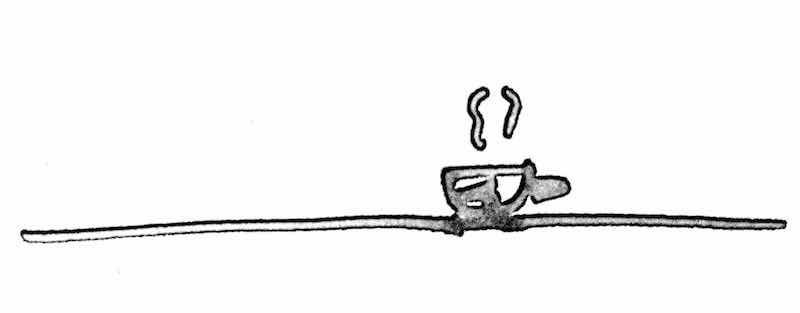Why does situation matter more than what customers like?
A core part of the Jobs to be Done concept is about finding the chain of cause and effect (situation) that makes a person use (hire) a particular product.
A personal example: I like coffee. Most of the time I aim for independent stores that craft a great cup. I’ve got a general preference to avoid chain stores. Quality is pretty poor, and they tend to use shady tax schemes that don’t help local economies.
But sometimes I buy from Caffè Nero.

Why? It’s not because of what I think about their product. I don’t think their coffee is “better”. It’s not because I like their “atmosphere”. It’s not because its any cheaper than the local independents.
There’s a specific situation that, for me, Nero really works. Early starts to catch a train. Here are the causes that take me to Nero:
- Local places don’t open early enough. I can’t buy even if I wanted to.
- Nero is quick. Maybe there’s not much in it in reality, but when I’m grabbing a coffee before I need to catch the train I want it done fast. I’m probably cold and tired and I don’t care about the latte art or conversation.
- Nero does a bigger cup. Most of the time I find chain coffee sizes ridiculously large. In this situation though, it’s exactly what I want. I probably haven’t had breakfast, so I want a large latte to fill me up until I get to my destination.
- Nero uses two shots of espresso compared to most other chains’ single shot. This makes their latte taste roughly like a coffee, rather than coffee flavoured milk.
If I was deciding based on product attributes alone – mainly the coffee flavour in this case – I’d probably end up unsatisfied. I’d have to go out of my way to find a local cafe that’s open early enough, end up rushing to catch my train, and then being hungry half way in to the journey.
If I wanted to sit down with a coffee and a book I’d never make Nero my first choice, just like I wouldn’t choose an independent that focused on big-but-mediocre coffee with faceless service in the same situation. In this situation, I’d be extremely satisfied by the same local cafe that was unsatisfying at 7am rushing for my train.
When you only look at product attributes, you don’t uncover why people really choose to buy your product. I’m not buying for an objective measure of “better”. I’m buying because in this particular situation, a coffee from Nero solves my current “problem” better than anyone else.
And that’s okay too. An independent probably doesn’t want to compete for this job. They’d struggle to cover the costs of opening early. They aim for a personal touch. The focus on a great flavour, which in part is down to size – a more reasonable cup means a bigger coffee to milk ratio. What’s important is that they understand the situations when people do want a better coffee.
The same goes for any product. Looking at attributes doesn’t give you the full picture. In any given situation, some attributes will matter more; some less. The service around the product also has a huge impact on how well you can satisfy the job, too – something you wouldn’t understand by only looking at attributes.
Thanks to Sam Knight and Louise Howells for reviewing drafts of this post.